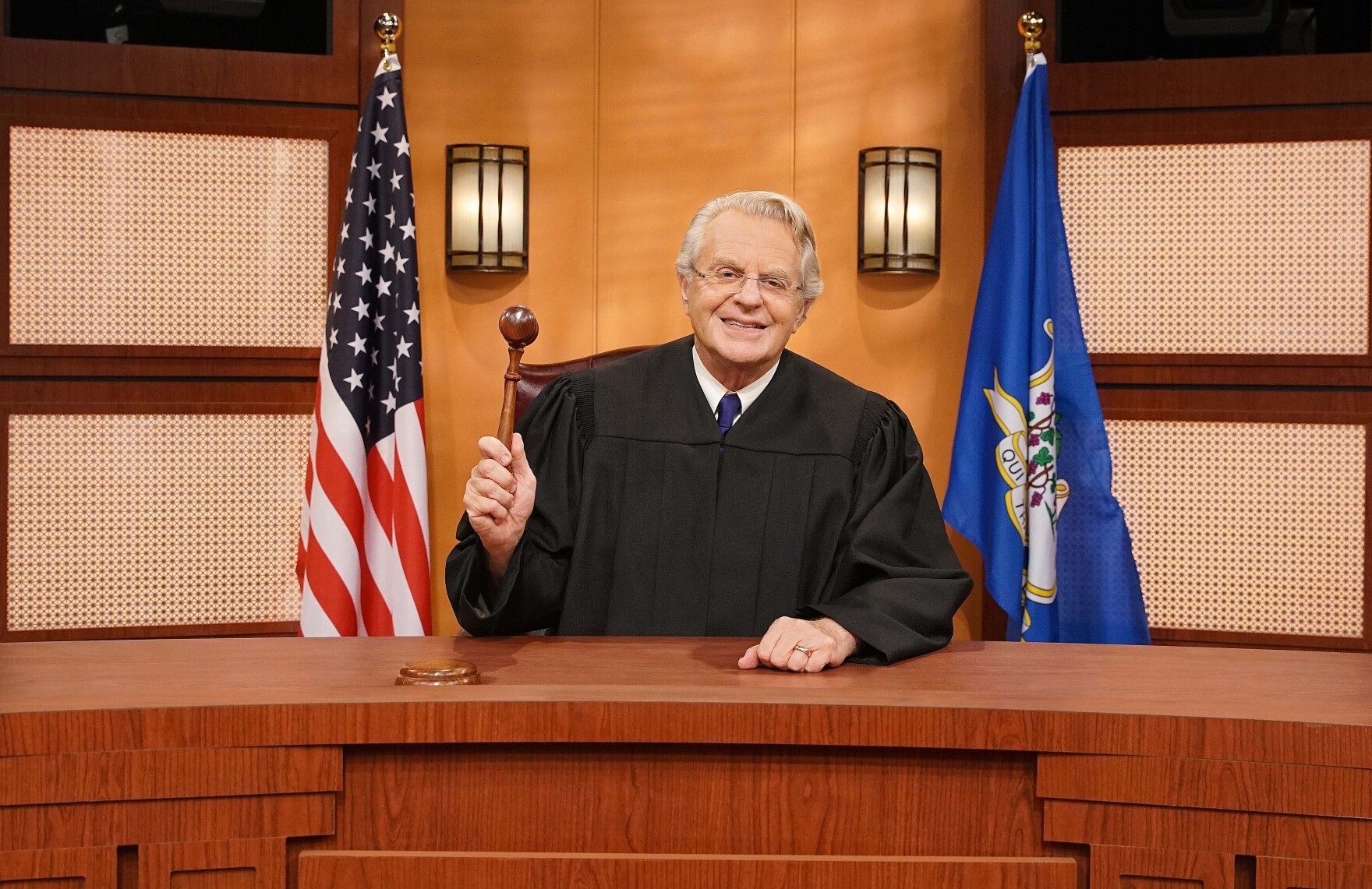When it comes to addressing a lawyer, it is essential to show the proper respect and professionalism. Lawyers have dedicated years of their lives to obtaining their education and building their expertise in the field of law. Addressing them correctly not only shows respect for their hard work but also sets the tone for a productive and professional relationship.
One of the most common ways to address a lawyer is by using the title “Esquire” after their name. This traditional title is often used to address lawyers in written correspondence or formal situations. For example, you might write, “John Smith, Esquire.” The use of “Esquire” signifies that the person is a lawyer and is a formal way to address them with the appropriate level of respect.
Another common way to address a lawyer is by using the title “Mr.” or “Ms./Mrs.” followed by their last name. This is a more formal and respectful way to address a lawyer, especially in a face-to-face conversation or in a formal setting. For example, you might say, “Mr. Johnson” or “Ms. Smith” to show respect and professionalism.
It is important to note that the specific way to address a lawyer may vary depending on the jurisdiction or cultural norms. It is always a good idea to research the appropriate form of address based on the country or region in which you are interacting with a lawyer. Additionally, if the lawyer has a specific preference for how they are addressed, it is best to follow their lead to ensure a positive and respectful interaction.
Why Addressing a Lawyer Properly Is Important
When it comes to addressing a lawyer, it is crucial to do so with the proper respect and etiquette. This is not just a matter of politeness; it is also important for professional reasons. Here are a few reasons why addressing a lawyer properly is important:
1. Establishing a professional relationship
Addressing a lawyer properly helps to establish a professional relationship from the beginning. It sets the tone for the interactions that will follow and shows that you value their expertise and authority.
2. Showing respect for their knowledge and experience
Lawyers spend years studying and gaining experience in their field. Addressing them properly shows that you acknowledge and respect the knowledge and experience they bring to the table. This can go a long way in building trust and cooperation.
Addressing a lawyer by their proper title, such as “Mr.” or “Ms.”, followed by their last name, shows that you understand and appreciate their professionalism.
3. Avoiding misunderstandings and miscommunication
Addressing a lawyer properly also helps to avoid misunderstandings and miscommunication. Using the correct title and name ensures that your message reaches the intended recipient and that there is no confusion about who you are addressing.
Using the wrong title or name may lead to your message being overlooked or disregarded, which can hinder the progress of your legal matters.
In conclusion, addressing a lawyer properly is not just a matter of etiquette; it is important for establishing a professional relationship, showing respect for their knowledge and experience, and avoiding misunderstandings. By using the correct title and name, you demonstrate your professionalism and set a positive tone for all future interactions.
Understanding the Different Types of Lawyers
Legal matters can be complex, and it often takes a skilled professional to navigate through the intricacies of the law. Lawyers are individuals who are qualified to provide legal advice and representation to clients. However, not all lawyers specialize in the same areas of law. Understanding the different types of lawyers can help you choose the right one for your specific legal needs.
Here are some of the most common types of lawyers:
| Type of Lawyer | Description |
|---|---|
| Criminal Defense Lawyers | These lawyers specialize in defending individuals or organizations charged with criminal offenses. They are responsible for protecting the rights of their clients and ensuring a fair trial. |
| Personal Injury Lawyers | Personal injury lawyers handle cases related to accidents, injuries, and wrongful deaths caused by the negligence of others. They help their clients seek compensation for medical expenses, lost wages, and pain and suffering. |
| Family Lawyers | Family lawyers deal with legal matters related to family relationships, including divorce, child custody, adoption, and child support. They strive to protect the best interests of their clients and promote a fair resolution. |
| Real Estate Lawyers | Real estate lawyers provide legal assistance for matters related to buying, selling, or leasing property. They handle issues such as property transfers, title searches, zoning restrictions, and contract negotiations. |
| Corporate Lawyers | Corporate lawyers advise businesses and corporations on legal matters, such as contracts, mergers and acquisitions, intellectual property rights, and employment law. They help their clients comply with legal requirements and protect their interests. |
These are just a few examples of the many types of lawyers that exist. Other types include immigration lawyers, intellectual property lawyers, environmental lawyers, and tax lawyers, among others. Each type of lawyer specializes in a specific area of law and has unique skills and knowledge to handle cases within their respective fields.
When seeking legal representation, it is important to find a lawyer who has experience and expertise in the specific area of law that your case involves. This will increase the likelihood of a successful outcome and ensure that your rights are protected throughout the legal process.
Now that you have a better understanding of the different types of lawyers, you can make an informed decision when choosing legal representation.
Formal Ways of Addressing a Lawyer in a Professional Setting
When interacting with a lawyer in a professional setting, it is important to use the proper form of address to maintain a respectful and professional tone. Here are some formal ways to address a lawyer:
1. Mr./Ms./Mrs./Miss + Last Name
Using a courtesy title followed by the lawyer’s last name is a common and respectful way to address them. For example, you can say “Mr. Smith” or “Ms. Johnson.”
2. Attorney + Last Name
Another formal way to address a lawyer is by using the title “Attorney” followed by their last name. This is a more specific and professional way of addressing them. For instance, you can say “Attorney Thompson.”
3. Counselor + Last Name
In certain professional settings, such as courtrooms or legal conferences, it is appropriate to use the term “Counselor” followed by the lawyer’s last name. This term emphasizes the lawyer’s role as a legal advisor and advocate. For example, you can say “Counselor Davis.”
4. Esquire
In some formal situations, you may choose to use the title “Esquire” after a lawyer’s name. This title indicates that the person is qualified to practice law. For instance, you can say “John Smith, Esq.”
Remember to use proper formality when addressing a lawyer, especially in professional settings such as courtrooms, law offices, or legal conferences. Using the appropriate title and last name will demonstrate your respect for their profession and help maintain a professional atmosphere.
Informal Ways of Addressing a Lawyer in a Casual Setting
In a casual setting, it is not always necessary to address a lawyer with formal titles and honorifics. Here are some informal ways you can address a lawyer:
| Informal Address | Explanation |
|---|---|
| Hey, Counsel | Using “Counsel” as a casual way to refer to a lawyer. |
| Yo, Esquire | Using “Esquire” as a slang term for a lawyer. |
| Hey, Legal Eagle | Using “Legal Eagle” to playfully refer to a lawyer’s expertise. |
| What’s up, Law Wizard | Using “Law Wizard” to acknowledge a lawyer’s skill and knowledge. |
While these informal ways of addressing a lawyer can be used in a casual setting, it is important to note that it is always best to use a formal address when dealing with legal matters or in a professional setting.
Addressing a Female Lawyer: Using the Correct Titles
When addressing a female lawyer, it is important to use the correct titles to show respect and professionalism. Here are some proper ways to address a female lawyer:
- Ms./Mrs./Miss [Last Name]
If you do not know the lawyer’s marital status, it is best to use the title “Ms.” followed by her last name. For married lawyers, you can use the title “Mrs.” or “Ms.” followed by her last name. If the lawyer is unmarried, you can use the title “Miss” followed by her last name. For example, you can address a female lawyer named Jane Smith as “Ms. Smith” or “Mrs. Smith.”
- Esquire
An alternative and more formal way to address a female lawyer is to use the title “Esquire” after her last name. This title is commonly used in legal circles to denote a lawyer. For example, you can address a female lawyer named Mary Johnson as “Mary Johnson, Esq.”
- Attorney [Last Name]
Another common way to address a female lawyer is to use the title “Attorney” followed by her last name. This is a professional and respectful way to address a lawyer. For example, you can address a female lawyer named Sarah Williams as “Attorney Williams.”
- Dr. [Last Name]
If the female lawyer also holds a doctoral degree, such as a Juris Doctor (J.D.), you can use the title “Dr.” followed by her last name. This title recognizes her legal qualifications and achievements. For example, you can address a female lawyer named Emily Anderson as “Dr. Anderson.”
Remember, it is important to use these titles when addressing a female lawyer to show respect and professionalism. Using the correct titles helps to establish a positive and courteous professional relationship.
Addressing a Lawyer in Writing: Salutations and Signatures
When addressing a lawyer in writing, it is important to follow the appropriate salutations and use proper signatures. Respecting the formalities of professional communication is not only a sign of professionalism but also shows your understanding of legal etiquette.
Salutations
When beginning a letter or email to a lawyer, you should use a formal salutation. It is best to use the lawyer’s full name preceded by “Mr.” or “Ms.”, depending on their gender. If the lawyer has a professional title, such as “Dr.” or “Professor”, make sure to include it as well. For example:
- Dear Mr. Smith
- Dear Ms. Johnson
- Dear Dr. Williams
Using “Dear” followed by the lawyer’s last name is also acceptable if you are familiar with the lawyer on a more personal level. However, always err on the side of formality unless you have been given permission to address the lawyer less formally.
Signatures
When signing off in a letter or email to a lawyer, it is important to use an appropriate closing. The most common closing is “Sincerely”, followed by your full name. If you are writing on behalf of an organization or company, you should include your position or title as well. For example:
- Sincerely,
- John Smith
If you are writing an email, it is also a good practice to include your contact information below your signature, such as your phone number or email address. This allows the lawyer to easily reach out to you if necessary.
Keep in mind that while it is important to demonstrate respect when addressing a lawyer, it is equally important to maintain a professional tone throughout your communication. Clear and concise language will help convey your message effectively and establish a positive impression.
Addressing a Lawyer in Court: Rules and Etiquette
When appearing in court, it is important to show respect and professionalism towards everyone in the courtroom, including the lawyers. Knowing how to properly address a lawyer in court can help create a positive and respectful atmosphere. Here are some rules and etiquette to follow:
1. Using the Appropriate Title
Addressing a lawyer by their correct title is crucial in court. The most common and respectful way to address a lawyer is by using the title “Counsel.” For example, you can say “Good morning, Counsel” when greeting a lawyer in court.
2. Using Last Names
Addressing a lawyer by their last name is also a common practice. This shows formality and respect. For example, if the lawyer’s name is John Smith, you can say “Good afternoon, Mr. Smith” or “Thank you, Ms. Johnson.”
It is important to note that some lawyers may prefer to be addressed by their first name or a nickname. If you are unsure, it is best to stick with using their last name until you are told otherwise.
Remember: Always use “Mr.” or “Ms.” followed by the last name. Avoid using first names unless specifically instructed to do so.
3. Being Polite and Respectful
When addressing a lawyer or speaking to them in court, it is essential to maintain a polite and respectful tone. Use phrases such as “Your Honor” or “May it please the court” when addressing the judge, and “Thank you, Counsel” when expressing gratitude towards the lawyer.
Remember: It is important to show respect not only through your words but also through your tone of voice and body language.
By following these rules and etiquette, you can ensure that you address lawyers in court professionally and respectfully. This can contribute to a positive courtroom environment and help create a good impression.
Addressing a Lawyer in Business or Social Events: Tips and Examples
When attending business or social events where lawyers are present, it is important to address them properly. Using the correct form of address not only shows respect but also reflects your professionalism. Here are some tips and examples to help you address a lawyer in such occasions:
- Address by their professional title:Lawyers are often addressed by their professional title, such as “Mr.,” “Mrs.,” “Ms.,” or “Dr.,” followed by their last name. For example, you can address a lawyer named John Smith as “Mr. Smith.” This form of address is commonly used in formal settings.
- Use “Esquire” as a formal form of address:Another way to address a lawyer in a formal setting is to use the title “Esquire” after their last name. This usage is more common in the United States. For example, you can address a lawyer named Jane Doe as “Ms. Doe, Esquire.”
- Use “Attorney” as a less formal form of address:In less formal situations, you can simply use the title “Attorney” followed by their last name. For example, you can address a lawyer named Michael Brown as “Attorney Brown.” This form of address is often used in networking events or social gatherings.
- Use “Counselor” as a respectful form of address:Another way to address a lawyer in a respectful manner is to use the title “Counselor” followed by their last name. This form of address is often used to show a higher level of respect and is suitable in various business or social settings.
- Avoid using their first name unless given permission:It is generally best to avoid using a lawyer’s first name unless they have explicitly given you permission to do so. Using their last name or professional title is a safer choice and shows a level of professionalism.
Example:
At a business conference, you approach a lawyer named Emily Rodriguez. Instead of addressing her by her first name, you can say, “Ms. Rodriguez, it’s a pleasure to meet you.” This shows respect and professionalism.
Remember, addressing a lawyer properly in business or social events is important for building and maintaining professional relationships. By using the appropriate form of address, you demonstrate your understanding of professional etiquette.
FAQ: How do you address a lawyer
What is the appropriate way to address a practicing lawyer on a business card or in professional correspondence?
The appropriate way to address a practicing lawyer in professional settings such as on a business card or in correspondence is by using their full name followed by a comma and their credential, for example, “Jane Doe, Esquire” or “John Smith, Attorney at Law.”
How should you address a letter to a female attorney who uses her maiden name professionally?
When addressing a letter to a female attorney who uses her maiden name professionally, you should use her full professional name without assuming the use of a married name, for example, “Ms. Jane Maiden, Attorney at Law.”
What is the best way to address an attorney in a letter if you have a professional relationship with the attorney?
If you have a professional relationship with the attorney, the best way to address them in a letter is by using “Mr./Ms. [Last Name],” followed by their title “Esquire” or “Attorney at Law” in the address line or greeting, depending on the formality of the letter.
How may you address an attorney socially if you know the attorney relatively well?
If you know the attorney relatively well in a social context, it may be appropriate to address them by their first name or “Mr./Ms. [Last Name]” according to their preference and your level of familiarity.
Is it necessary to include the title “Esquire” or “Attorney at Law” when addressing an envelope to a lawyer and their spouse?
When addressing an envelope to a lawyer and their spouse, it is customary to include the lawyer’s professional title only if the context is professional. For social correspondence, using standard courtesy titles such as “Mr.” or “Ms.” followed by the couple’s last names is appropriate.
What protocol should be followed for addressing a practicing attorney who has more than one degree, such as a Juris Doctorate and a law degree from another country?
When addressing a practicing attorney with multiple degrees, the protocol is to use the primary credential relevant to the context. For professional contexts within the U.S., “Esquire” or “J.D.” after the name is standard. In academic or international settings, you may use the credential most relevant to the discussion or according to the attorney’s preference.
How do you address a practicing attorney in a court of law?
In a court of law, a practicing attorney is typically addressed as “Mr./Ms. [Surname]” or by using a standard courtesy title such as “Counselor” or “Attorney [Surname]” depending on the formality and tradition of the court.
When writing to an attorney, is it proper to use their first and last name without any titles if you know the attorney relatively well?
When writing to an attorney with whom you have a familiar relationship, using their first and last name without titles can be acceptable in informal or personal communication. However, in professional or public correspondence, using titles and surnames is recommended for clarity and respect.
What is the proper way to address an attorney who is also a professor in an academic setting?
In an academic setting, addressing an attorney who is also a professor should include their academic title followed by their name and possibly their legal credential if relevant to the context, for example, “Professor John Doe, J.D.”
How should you inquire about an attorney’s preferred form of address if you are unsure?
If you are unsure about an attorney’s preferred form of address, the most respectful approach is to directly ask the attorney how they prefer to be addressed in both professional and social contexts. This ensures that you respect their preferences and maintain proper etiquette.
What is the proper protocol for addressing a letter to a lawyer who has passed the state bar exam?
The proper protocol for addressing a letter to a lawyer who has passed the state bar exam includes using their full name along with a professional title such as “Esquire” or “Attorney at Law” after their surname, indicating their licensed status.
How may you address an attorney in a social setting if you know their name socially?
If you know an attorney’s name socially, you may address them by their first name or use a more formal approach with “Mr./Ms. [Surname]” depending on your relationship and the social context.
What should be included in the line before the address when mailing a letter to a law firm?
When mailing a letter to a law firm, the line before the address should include the attorney’s full name or the law firm’s name, followed by the professional title “Esquire” or “Attorney at Law,” if addressing a specific attorney, to ensure it is directed appropriately.
Is it appropriate to use “Esquire” when writing to a licensed attorney?
Yes, it is appropriate to use “Esquire” when writing to a licensed attorney. This title is traditionally used after the attorney’s surname to denote their professional status as someone licensed to practice law.
How do you know whether to address an attorney as a “lawyer” or “attorney” in correspondence?
Both “lawyer” and “attorney” are generally acceptable and interchangeable terms; however, “attorney” might be preferred in formal correspondence as it specifically implies a professional who is licensed to practice law in a particular jurisdiction.
What is the proper way to address an attorney who has more than one professional title or credential?
When addressing an attorney with more than one professional title or credential, it is proper to use the title or credential most relevant to the context of your correspondence. If in doubt, you can use “Esquire” or include multiple credentials in a way that respects their professional achievements.
How can you ensure you are using the courtesy title correctly when addressing a married female attorney who uses her maiden name professionally?
To ensure correct use of the courtesy title when addressing a married female attorney who uses her maiden name professionally, address her by her chosen professional name and title without assumption of her marital status, e.g., “Ms. Jane Doe, Esquire.”
What is considered the standard courtesy title for social correspondence with an attorney?
The standard courtesy title for social correspondence with an attorney is to use “Mr./Ms. [Surname]” without necessarily including their professional title, unless the social context directly relates to their professional role.
Why is it important to use an attorney’s full name and title when addressing them in a formal letter?
Using an attorney’s full name and title when addressing them in a formal letter is important as it shows respect for their professional status, ensures clarity in communication, and adheres to the proper protocol for legal correspondence.
How does passing the state bar exam influence how a person should be addressed in professional settings?
Passing the state bar exam qualifies a person as a licensed attorney, thereby influencing how they should be addressed in professional settings. They may be referred to with titles such as “Esquire” or “Attorney at Law” after their name, acknowledging their legal authority and expertise.






